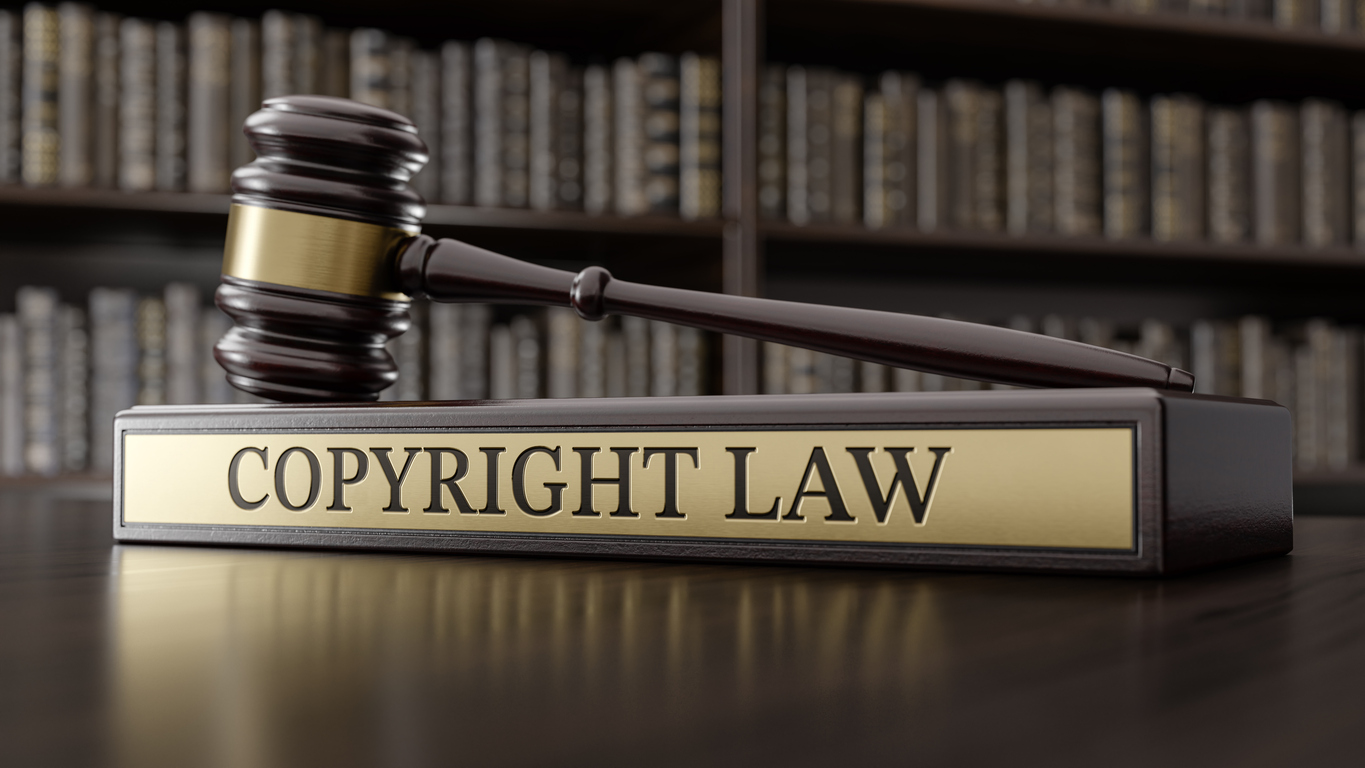- 2 Nov 2025

In the digital publishing world, creators have unprecedented power to produce and distribute content. From personal blogs to professional vlogs, the internet has become a vast landscape of creative expression. However, this landscape is also governed by strict legal parameters. Understanding copyright law for content creators is crucial for avoiding infringement, safeguarding original material, and maintaining platform access. Blogs and vlogs frequently borrow from third-party sources—images, music, text, and videos—which makes them particularly vulnerable to copyright violations. A single misstep, even unintentional, can result in DMCA takedowns, demonetization, or lawsuits.
is crucial for avoiding infringement, safeguarding original material, and maintaining platform access. Blogs and vlogs frequently borrow from third-party sources—images, music, text, and videos—which makes them particularly vulnerable to copyright violations. A single misstep, even unintentional, can result in DMCA takedowns, demonetization, or lawsuits.
What Copyright Law Means for Content Creators Online
Federal protection under copyright law begins the moment original content is fixed in a tangible form. This applies to nearly all creative work generated by bloggers and vloggers, including written posts, video scripts, filmed segments, thumbnails, and audio overlays. The automatic nature of this protection means registration is not required for coverage. However, without formal registration through the U.S. Copyright Office, a creator cannot bring an infringement case in federal court. This legal limitation is often misunderstood, leaving many digital creators under the false impression that hosting content on a platform like YouTube or WordPress is sufficient. In reality, hosting provides distribution but does not establish official ownership in the eyes of the law.
Unique Copyright Challenges Faced by Bloggers
Bloggers frequently embed content or quote sources they believe are in the public domain or fall under fair use. This includes using charts, images, or paragraphs from news sites, academic resources, or even other blogs. While citation is often practiced, attribution alone does not confer legal permission. Many creators are surprised to learn that even small excerpts, if substantial in nature or affecting the original work’s market value, may constitute infringement. The application of copyright law for content creators in blogging requires careful evaluation of the content used and whether a valid license or exemption applies. Simply linking to a source does not eliminate liability if the copied material lacks proper authorization.
How Vlogging Complicates Copyright Compliance
Vlogs amplify copyright concerns due to the mixed-media nature of their format. Video content typically integrates music, stock footage, branded materials, and third-party visuals. Each of these elements is subject to independent copyright rules. Vloggers might include background music or trending clips believing the duration is too short to be an issue, or that “transformative” use qualifies as fair use. However, copyright law for content creators is fact-specific and courts evaluate the context, purpose, and market impact of the use—not just the creator’s intent. Even platform features such as YouTube’s Content ID can detect minimal copyright violations and trigger automatic claims, strikes, or revenue redirection.

The Fair Use Doctrine and Its Limited Protection
A major area of confusion among digital creators is the application of fair use. Many bloggers and vloggers invoke fair use to justify inclusion of copyrighted material in their content. While the doctrine allows limited use of copyrighted content without permission for purposes such as commentary, criticism, news reporting, or education, the scope is not absolute. Courts examine the purpose of use, the nature of the original work, the amount used, and the effect on the market value. This analysis is case-specific and subjective. For example, a vlogger who includes a clip from a film alongside critical analysis may fall within fair use. However, using that same clip in a music video compilation or reaction video with minimal commentary likely exceeds permissible bounds under copyright law for content creators.
Misuse of Royalty-Free and Licensed Content
Another frequent misunderstanding involves royalty-free or Creative Commons-licensed content. Creators often assume these materials are open for unrestricted use. In reality, each licensing agreement comes with unique conditions. Some licenses require user attribution, prohibit alterations, or limit commercial applications. A content creator who downloads free music or stock footage may inadvertently violate terms by omitting credit or repurposing it for monetized platforms. For bloggers, similar violations arise from improperly using photos from “free” image websites that restrict use outside editorial or non-commercial contexts. Copyright law for content creators demands that creators verify licensing conditions for every third-party asset, even if it’s labeled as free or open-source.
DMCA Takedowns and Copyright Enforcement
When content violates copyright, enforcement often begins through digital platform processes rather than court filings. The Digital Millennium Copyright Act (DMCA) provides copyright owners with a mechanism to request the removal of infringing material. For example, a photographer who discovers their image on a blog can send a DMCA notice to the host demanding its removal. The blog host is then legally obligated to comply. Similarly, vloggers using unauthorized audio clips can face takedown or demonetization through automated systems like YouTube’s Content ID. These tools enforce copyright law for content creators by identifying matches to copyrighted media and imposing penalties such as muting, blocking, or redirecting ad revenue. In severe cases, repeated violations can result in channel deletion or account suspension.
Legal Ownership in Collaborative Content
Collaborative projects present another layer of legal complexity. When a content creator works with guest writers, editors, co-hosts, or videographers, questions of ownership arise. Under copyright law for content creators, the person who contributes original creative input holds the copyright—unless a written work-for-hire agreement says otherwise. Informal arrangements often lead to disputes if the content becomes monetized or reused without consent. It is critical to have clear, written contracts that define who owns the resulting material. Otherwise, both the creator and contributor may have shared or competing rights to control the work. This issue can disrupt monetization strategies, brand deals, and licensing opportunities.

Liability from User-Generated Content
For creators managing interactive platforms such as comment sections, forums, or guest submissions, legal exposure may extend to user-generated content. If a user posts copyrighted material in a blog comment or uploads a video response containing infringing content, the primary account owner could be held accountable. However, copyright law for content creators does offer protection through safe harbor provisions—provided the creator responds promptly to takedown requests and does not profit from the infringing material. Failure to moderate or remove infringing content can eliminate this protection and result in liability. Proactive moderation policies and clear terms of service are necessary for mitigating legal risks associated with public contributions.
International Reach and Copyright Conflicts
Global accessibility adds another layer of complexity. A blog post or vlog published in the United States can be accessed—and infringed upon—anywhere in the world. The United States is a party to international agreements like the Berne Convention, which allows rights holders to pursue violations in other member countries. This means content taken from or misused by international actors can still lead to claims. Likewise, using foreign content without clearance may violate that country’s laws. For globally-facing creators, understanding how copyright law for content creators interacts across borders is essential for compliance. Ignorance of international law is not a defense, especially when distribution reaches a global audience.
Common Misconceptions That Lead to Infringement
Digital creators often operate under myths that ultimately lead to legal trouble. One common belief is that using content for non-commercial purposes exempts it from copyright claims. Another is that adding disclaimers like “no copyright intended” or including citations is enough to prevent legal action. Some believe that using under ten seconds of a song or including a movie still frame is acceptable. However, copyright law for content creators does not consider disclaimers, intent, or duration as automatic defenses. Infringement is based on unauthorized use and the resulting impact on the original creator’s rights, not the size or purpose of the excerpt.
Benefits of Registering Your Own Content
Although copyright protection begins automatically, registering work through the Copyright Office enhances the creator’s legal standing. Registration allows the copyright owner to file lawsuits, recover statutory damages, and claim legal fees. This is especially important for vloggers whose videos generate revenue or bloggers whose long-form content is widely shared or syndicated. Without registration, a creator’s legal remedies are limited. For creators investing heavily in their digital assets, taking the additional step to register valuable posts or series can create long-term protection and leverage.
Maintaining Compliance Through Informed Creation
Sustainable content creation relies on legally sound practices. This includes sourcing media from reputable platforms, reading license agreements thoroughly, keeping documentation of permissions, and avoiding shortcuts like unattributed reposting or remixing. Building a content strategy rooted in compliance ensures creators don’t face sudden takedowns, channel losses, or legal fees. To gain deeper insight into lawful content production, review this detailed resource on copyright law for content creators.

Why Every Digital Publisher Must Study Copyright Law for Content Creators
The consequences of ignoring copyright law for content creators can escalate quickly—from minor strikes to platform bans and lawsuits. Bloggers and vloggers who treat copyright law as an afterthought risk sabotaging their content strategies and digital reputations. When creators fully understand what copyright law for content creators protects and prohibits, they gain confidence in how they use external media, license their work, and safeguard their own creative property. Whether it’s reposting a social media meme or adding a trending soundbite to a vlog intro, every piece of content must pass the filter of copyright compliance. Legal literacy separates sustainable creators from short-lived digital mistakes.
Copyright Law for Content Creators Is the Foundation of Online Ownership
In today’s creator economy, ownership is everything. Without understanding copyright law for content creators, even the most talented blogger or vlogger can lose control of their content overnight. From YouTube monetization to blog syndication deals, all rely on clean legal foundations. Knowing how copyright law for content creators applies to every clip, graphic, and written line ensures that creators maintain exclusive rights to their material and avoid revenue disruptions. As digital platforms enforce stricter guidelines, having a deep grasp of copyright law for content creators is not just advisable—it’s vital. Those who treat copyright literacy as foundational will build brands and bodies of work that last.
Conclusion: Legal Literacy Is Creative Power
In the evolving world of digital publishing, creators must not only be innovative but also legally aware. Whether writing a blog post or producing a viral vlog, understanding how copyright law for content creators applies is fundamental to long-term success. Legal compliance protects content, maintains monetization channels, and prevents damaging consequences. In a creator economy where platforms can change rules overnight, copyright literacy is one of the few constants that offers stability. By respecting others’ rights and securing their own, bloggers and vloggers can continue producing content that is not only impactful but also protected.
Recent posts
- 17 Oct 2025
Categories
- Accident & Injury Law (54)
- AI (1)
- Copyright Law (1)
- Criminal & Civil Law (17)
- Disability Law (2)
- Driving Law (2)
- Employment Law (1)
- Estate Planning (2)
- Family & Relationship Law (29)
- Food and Drink (2)
- Gas Exposure (1)
- Health (1)
- Immigration Law (2)
- Injury Claim (1)
- Insurance Law (7)
- Legal (40)
- Lemon Law (4)
- Mediation (3)
- Medical Malpractice (1)
- Property & Business Law (9)
- Severance Agreement (1)
- Travel and Leisure (1)
- Uncategorized (12)
- Worker Compensation (2)

